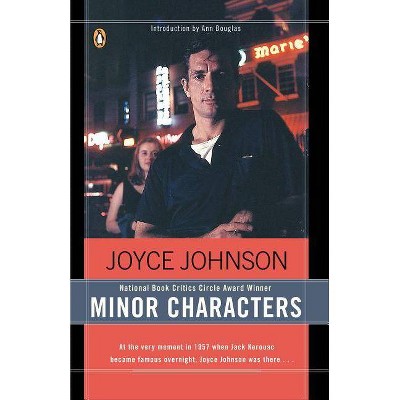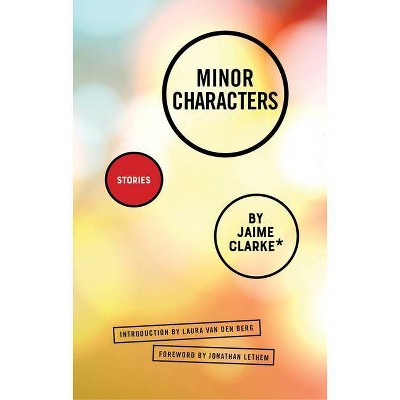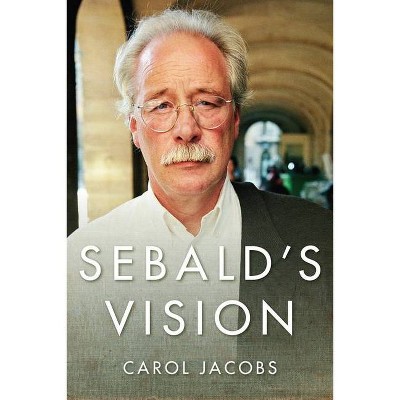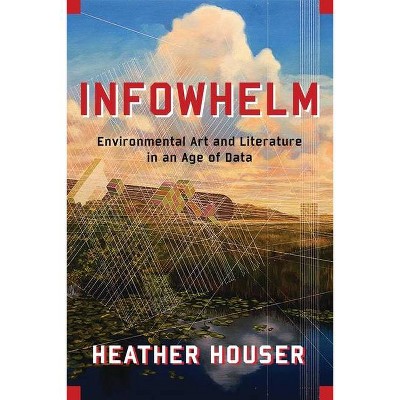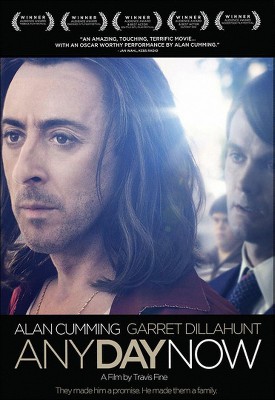Minor Characters Have Their Day - (Literature Now) by Jeremy Rosen (Hardcover)
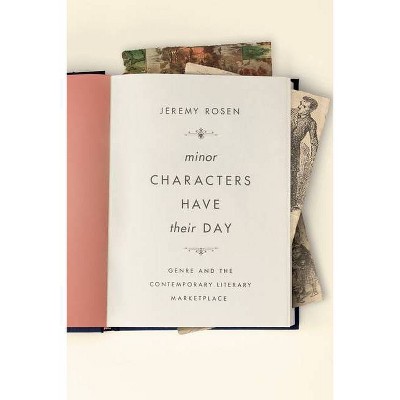
Similar Products
Products of same category from the store
AllProduct info
<p/><br></br><p><b> About the Book </b></p></br></br>Jeremy Rosen traces the recent surge books that transform minor characters from canonical literary texts into the protagonists of new work. A genre that sought to recover the voices of marginalized individuals and groups has begun to embody the neoliberal commitments of subjective experience, individual expression, and agency.<p/><br></br><p><b> Book Synopsis </b></p></br></br>How do genres develop? In what ways do they reflect changing political and cultural trends? What do they tell us about the motivations of publishers and readers? Combining close readings and formal analysis with a sociology of literary institutions and markets, <i>Minor Characters Have Their Day</i> offers a compelling new approach to genre study and contemporary fiction. Focusing on the booming genre of books that transform minor characters from canonical literary texts into the protagonists of new works, Jeremy Rosen makes broader claims about the state of contemporary fiction, the strategies of the publishing industry over recent decades, and the function of literary characters. <p/>Rosen traces the recent surge in "minor-character elaboration" to the late 1960s and works such as Jean Rhys's <i>Wide Sargasso Sea</i> and Tom Stoppard's <i>Rosencrantz and Guildenstern Are Dead</i>. These early examples often recover the voices of marginalized individuals and groups. As the genre has exploded between the 1980s and the present, with novels about Ahab's wife, Huck Finn's father, and Mr. Dalloway, it has begun to embody the neoliberal commitments of subjective experience, individual expression, and agency. Eventually, large-scale publishers capitalized on the genre as a way to appeal to educated audiences aware of the prestige of the classics and to draw in identity-based niche markets. Rosen's conclusion ties the understudied evolution of minor-character elaboration to the theory of literary character.<p/><br></br><p><b> Review Quotes </b></p></br></br><br>Thoroughly researched, well organized, and elegantly written, Minor Characters will remain influential for years to come.--Christian Moraru "MLQ: A Journal of Literary History "<br><br>[Jeremy Rosen] makes fascinating connections.... He presents his arguments about the genre using clear, accessible language and provides extensive notes.... Highly recommended.--Choice<br><br>Rosen's rigorous study of genre and its formal properties advances the argument that because literary markets are increasingly globalized, so too are the literary canons they create.--Literature Compass<br><br>A compelling book. . . . This study is a valuable component of a larger inquiry into scholarship on contemporary character, transmedia storytelling, and the world literary market.--Daniel Punday "ASAP/Journal "<br><br>Rosen's study moves from close reading a series of texts to a study of minor-character elaboration texts as instigators of and reactions to historical political and social movements and needs. In this way, <i>Minor Characters Have Their Day</i> offers a book history perspective on the minor-character elaboration genre.--Rachel Noorda "SHARP News "<br><br><i>Minor Characters Have Their Day</i> is a superb book that focuses on a seemingly minor contemporary literary genre--what Rosen calls 'minor-character elaboration'--to make larger claims about contemporary fiction more generally, about genre and its relationship to the consolidation of the publishing industry over the last several decades, and about the nature of literary character.--Andrew Hoberek, author of <i>The Twilight of the Middle Class: Post-World War II American Fiction and White-Collar Work</i><br><br>An homage, critique, and exploitation of the literary tradition, the genre of minor-character elaboration has hid in plain sight since Jean Rhys inaugurated it in 1966 and the publishing industry capitalized on its appeal shortly thereafter. Rosen takes this strange mix of the oppositional and conventional to reexamine genre theory and the history of the novel. An important book for anyone interested in genre or the post-'45 moment.--Deborah L. Nelson, author of <i>Pursuing Privacy in Cold War America</i><br><br>Jeremy Rosen's book sheds light on two complex and entwined features of the contemporary literary system: the growing commercial and symbolic importance of genre fiction and the proliferation of novels whose heroes are retooled versions of other novels' minor characters. Moving deftly between readings of individual works and arguments in sociological theory, Rosen succeeds in leveraging the genre of minor-character elaboration as an illuminating case study in the social and institutional dimensions of the contemporary book world.--James English, author of <i>The Economy of Prestige: Prizes, Awards, and the Circulation of Cultural Value</i><br><br>Rosen has thought through the [Minor Character Elaboration] genre's implications with meticulous thoroughness and imagination. . . . [A] fascinating book.--Julia Jordan "Times Literary Supplement "<br><br>To have discovered a fictional genre thriving unnoticed in the postwar literary field would have been impressive enough. <i>Minor Characters Have Their Day</i> does much more than this, contributing brilliantly to the study of genre as such. Lively, lucid, and persuasive, its reach will be very wide.--Mark McGurl, Stanford University<br><p/><br></br><p><b> About the Author </b></p></br></br>Jeremy Rosen is an assistant professor of English at the University of Utah. His work has been published in <i>New Literary History</i>, <i>Contemporary Literature</i>, and <i>Post45</i>.
Price History
Price Archive shows prices from various stores, lets you see history and find the cheapest. There is no actual sale on the website. For all support, inquiry and suggestion messagescommunication@pricearchive.us
